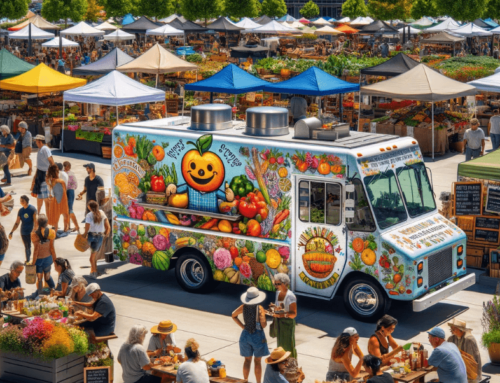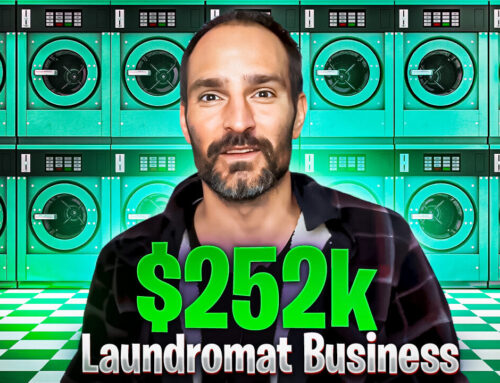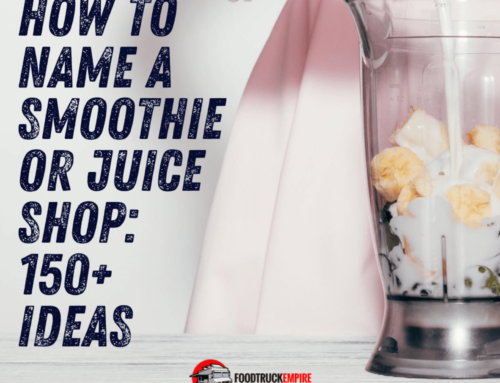When it comes to acquiring capital for a business, successful food truck owners are often forced to get creative when coming up with their seed funding. Since starting the Food Truck Empire podcast, I’ve had the opportunity to learn from entrepreneurs that launched their businesses with help from crowdsourcing websites like KickStarter.com, dipping into their savings or 401K accounts, charging credit cards or a combination of all these.
And these examples seem to be pretty close to a recent poll that asked food truck owners to share how they financed their own food trucks / trailers / carts, etc. From those that responded, these were the most common sources of capital:
- Personal Assets: 401K, Savings Account, or House.
- Family and Friends: Either asking for loans or gifts.
- Banks and Credit Unions: Going to a bank, filling out paper work, crossing your fingers that you get approved at a decent rate.
- Credit Cards: Putting it on the plastic.
- Online Crowsourcing Platforms: KickStarter.com, IndieGoGo.com, or other websites. The majority of crowdfunding websites do not require you to pay back the funds.
- Rent or Lease: This can be a great option especially if you’re not 100% confident in your menu or if you don’t want to go “all in” to invest in a food truck just yet.
- Getting a Government Grant or other Type of Grant: While you typically don’t need to pay these back.. This type of funding is typically very rare and hard to come by.
One thing that is clear among food truck owners I’ve interviewed, it’s that entrepreneurs often need to use a combination of each of the above frequently used funding techniques in order to raise sufficient capital. This is especially true for Marty Richie (full-audio interview provided below), owner of the Motley Crews food truck out of Lakeville, Minnesota. Richie used a combination of personal savings, 401K, a loan from his mother, and credit cards to fund his truck after being turned down for a bank loan.
How Should I Fund My Food Truck?
Your personal situation will usually determine how you decide to fund a truck. For example, if you’ve got $150,000 socked away in a savings account you can feel free to stop reading now. You don’t need my help. But assuming you’re not in this camp, you’ll need to explore some of the other options that are out there.
Before you drive down to the bank to apply for a traditional loan or tap into the 401K, I want to talk about some of the other paths to ownership that are possible. The first is that you don’t need to buy a food truck right away. You can rent a food truck instead.
Renting a Truck
You’ll need a lot less capital to rent a truck for a couple months as opposed to buying one and there are a lot of advantages to doing so. The first… and probably most important is that you can figure out if you actually want to operate a food truck. After two months of getting up in the morning to cook food and pounding the pavement you should have all the clarity you need to find out if this is truly the right business for you.
Second, the first food truck menu or brand you create might not stick. For example, Marty Richie had to go through numerous iterations on his menu before figuring out what worked. If you’ve got an innovative food idea, but haven’t tested the idea in the real world just yet you might want to start by renting a vehicle.
Learning from Others, Leveraging Pop-ups, and Old-Fashioned Hustling
If you have no money, your in debt, and no experience operating the food industry take a page out of Allen Tan’s playbook. Instead of giving up on his dreams because of lack of experience or capital, he offered to donate his time free of charge to food truck owners in his hometown of Toronto. This allowed him to start learning ins-and-outs of the business without investing a penny. What did Tan get in return?
For one, Tan learned what it’s like to operate a food truck. He quickly understood what it’s like to wakeup of before 6 a.m. to start cooking food for the day and how to manage the daily duties of a business. Maybe best of all, he learned whether or not he actually wanted to get into this type of business.
In Allen’s case, he decided that he would like to continue his journey and eventually began by doing “pop-ups” locally. Pop-ups allow chefs the opportunity to cook at an event with their own equipment, but without the need for a trailer or tent… sort of like catering an event. Again this was another step in the right direction for Allen. Even though he still didn’t have the funding for a truck, he was still able to get his brand MEnU out there and continue building momentum. The full-interview with Allen is also provided below so that you can learn more from his story.
The Crowdsourcing Revolution
Crowdsourcing websites like KickStarter.com allow anyone the opportunity to pitch their creative projects to members of the community. If enough members support the project by making donations, the project can receive significant capital to launch their venture. Numerous food truck owners have successfully leveraged this platform to obtain capital, but it isn’t quite as easy as setting up a profile and waiting for money to come in. In fact, the vast majority of campaigns never hit their goal and don’t get funded as a result.
Linda Jo Kushner is one KickStarter.com success story that was able to generate over $20,000 over a period of 28 days using the platform. If you want learn more about how she did it check out page 8 of this guide. She also explains how she was able to accomplish this in her own words in the interview below.
Learn How These People Started Their Business
One of the best ways to figure out how to do something is to learn from people that have been there and done that. In each of these podcasts the entrepreneurs share their unique perspective on raising capital and building a business:
Linda Jo Kushner: Learn how Kushner raised over $20,000 in 28 days using KickStarter.com so she could start Linda’s Luncheonette.
Marty Richie: Listen to Richies story of how he tapped into multiple sources (401K, savings, credit cards, and his family) to fund the Motley Crews Heavy Metal Grill.
Allen Tan: Listen to this episode to find out how you can get started with no experience in the food industry and lots of student loan debt. Also, learn how using the concept of a pop-up could help you get started even faster.
Laney Strange: See why Laney Strange decided to go with a food trailer instead of a truck to get Memphis Punch rolling.




